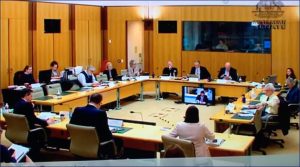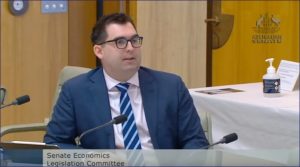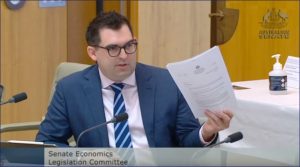 Last week Morrison made his pitch for the small business vote. It fell dead flat. That’s strange really.
Last week Morrison made his pitch for the small business vote. It fell dead flat. That’s strange really.
It’s almost an Australian political truism that political parties cannot win government in Australia without a sizable chunk of the small business vote. So, for Morrison, who’s supposed to be ‘Scotty from marketing,’ his seeming blindness to this alleged truism is odd.
Morrison’s pitch was that by lowering overhead costs and energy bills he’d create a vast number of new small businesses. This pitch is not specific and applies generally to any business (or family) in the economy. There’s no ‘joining of the dots’ between the pitch and the lives of the self-employed, small and family businesses.
Again, it’s strange that Morrison has totally missed his small business target. The Coalition in fact has a substantial history of not only spouting the small business mantra, but of having substance to support the mantra as well. Take some examples.
John Howard created the Independent Contractors Act to protect the status of the self-employed. Tony Abbott committed to the introduction of a Federal Small and Family Business Ombudsman and put the wheels in motion for unfair contract laws for small business. The Abbott-era commitments were finalised and delivered under the Turnbull coalition government.
Self-employed, small business people profile strongly on the measure of informed and swinging voters. They are extensive seekers of information. This again is why Morrison’s dead flat small business pitch seems so strange at this election.
At the 2019 election Morrison promised to introduce security of payment laws for small business. He’s done this. And it’s good. It’s strange that he’s not pitching it.
He also promised to ‘beef up’ unfair contract protections for small business people. The Bill was ready to go. But strangely this major pro-small business Bill was deserted immediately before the election was called. Did the ‘big end of town’ get to Morrison to pull the Bill?
Then there is the elephant in the room. The Australian Taxation Office has been crucifying small business. The ATO has destroyed small businesses in the research and development space—claiming dodgy use of grants—but the ATO subsequently admitted that it was wrong.
The ATO has been attacking small and family business trusts, forcing trust beneficiaries to pay tax when (even the ATO admits) the beneficiaries have not received any income. The ATO has also sought to change trust distribution rules retrospectively, thereby creating tax debts in the past where, under then-existing ATO rules, no tax debt existed.
In the 2021 Budget the Morrison government declared in Parliament that “We are backing small business in over the ATO. No longer will the ATO be able to garnishee and takeaway (alleged tax debt) while the dispute is in train”. But this promise turned out to be false. The implemented policy only enables small business people to ‘apply’ to have a disputed debt ‘paused’ until appeals have been heard.
Morrison’s pitch to create large numbers of small businesses falls dead flat if those new (and existing) small businesses find themselves under unfair attack from the ATO without the protections afforded by a rule of law regime.
To win and retain the small business vote the Coalition has historically made a policy of substance that it then delivers when in government. This time Morrison is not selling what he’s done and not promising anything new for small business.
It’s almost as if Morrison has abandoned the small business vote. How odd!
 It’s not extreme to say that the Australian Taxation Office is conducting a brazen financial bombing campaign against small and family businesses across Australia.
It’s not extreme to say that the Australian Taxation Office is conducting a brazen financial bombing campaign against small and family businesses across Australia. How would you like to be forced to pay tax when you have received no income? That’s what’s happening to a taxpayer following a High Court ruling this week. And it’s happened because the Australian Taxation Office has the legal power to act like a
How would you like to be forced to pay tax when you have received no income? That’s what’s happening to a taxpayer following a High Court ruling this week. And it’s happened because the Australian Taxation Office has the legal power to act like a  Who runs Australia? Is it the politically accountable politicians elected through the democratic process? Or is it the unidentified, unelected, bureaucrats who hide behind closed doors?
Who runs Australia? Is it the politically accountable politicians elected through the democratic process? Or is it the unidentified, unelected, bureaucrats who hide behind closed doors? Just recently we
Just recently we 

 The key
The key  Yesterday the ABC launched major coverage of a campaign to achieve a Taxpayer Bill of Rights. The coverage included TV, radio and online all day.
Yesterday the ABC launched major coverage of a campaign to achieve a Taxpayer Bill of Rights. The coverage included TV, radio and online all day. Goodness, we’ve been
Goodness, we’ve been  In 2018, high-profile tax lawyer Mark Leibler stated that the ATO effectively makes tax law. He said:
In 2018, high-profile tax lawyer Mark Leibler stated that the ATO effectively makes tax law. He said:




